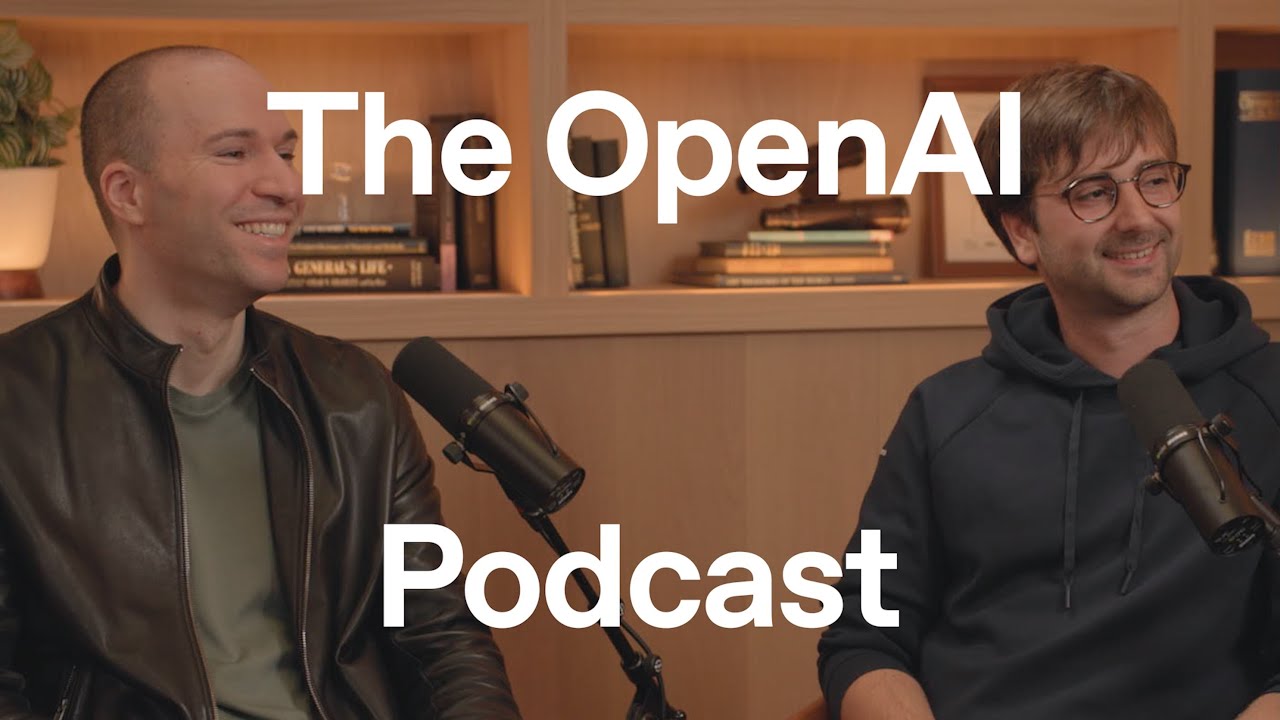In this episode of the OpenAI Podcast, Greg Brockman and Thibault Sottiaux discuss the evolution and future of AI-assisted coding with Codex and the advanced GPT-5 Codex, highlighting their capabilities in enhancing developer productivity through collaboration, complex task handling, and integration into real-world workflows. They also explore the broader implications of AI in software engineering, emphasizing safety, scalability, and the transformative potential of AI agents by 2030 to revolutionize coding, innovation, and economic value creation.
In this episode of the OpenAI Podcast, Andrew Mayne interviews Greg Brockman, OpenAI co-founder and president, and Thibault Sottiaux, Codex engineering lead, about the evolution and future of AI-assisted coding, particularly focusing on Codex and the newly launched GPT-5 Codex. They discuss the origins of using language models for coding, tracing back to early GPT-3 experiments where the model could complete code from docstrings, and how that initial promise has since been vastly exceeded. The conversation highlights the importance of not just the intelligence of the models but also the “harness”—the integration and tooling that allow AI to interact effectively with coding environments, execute code, and collaborate with developers in real-world workflows.
The hosts delve into the development of various interfaces and deployment methods for Codex, including command-line tools, IDE plugins, and cloud-based asynchronous agents. They emphasize the experimentation phase in finding the right form factors that fit naturally into developers’ workflows, balancing convenience, latency, and intelligence. Greg and Thibault explain how Codex acts as a collaborative partner, capable of handling complex tasks like debugging, refactoring, and code review, which significantly accelerates productivity. They also discuss the importance of safety, security, and human oversight in deploying AI agents that can autonomously modify code while maintaining user control.
A significant portion of the discussion centers on the capabilities of GPT-5 Codex, which is optimized for longer, more complex coding tasks and can sustain work for hours on intricate refactorings. This model not only improves code quality but also adapts its speed based on task complexity, making it a versatile collaborator. Greg Brockman reflects on how AI is transforming the role of programmers by automating mundane tasks and enabling engineers to focus on higher-level design and problem-solving. The conversation also touches on the broader implications of AI in software engineering, such as automating migrations, security patching, and even building new tools autonomously.
Looking ahead, Greg and Thibault share their vision for the future of AI coding agents by 2030, envisioning vast populations of AI agents working in cloud environments, supervised and steered by humans to generate significant economic value. They stress the importance of scalable oversight, trust, and alignment to ensure these agents operate safely and effectively. The discussion also explores the potential for AI to solve novel, complex problems beyond coding, such as drug discovery and material science, marking a shift from AI as a tool for automation to a partner in innovation. They acknowledge the challenges of compute scarcity and the need to expand infrastructure to support widespread AI deployment.
Finally, the podcast addresses the impact of AI on learning and labor in coding. Both guests encourage learning to code alongside learning to use AI tools, highlighting how Codex accelerates skill acquisition and helps developers write better, simpler, and more maintainable code. They note the rapid growth in Codex usage and the evolving understanding of how to harness GPT-5 effectively. The episode closes with optimism about the ongoing exponential progress in AI capabilities and the mission to make these powerful tools accessible and beneficial to everyone, ultimately transforming how software is built and maintained.
